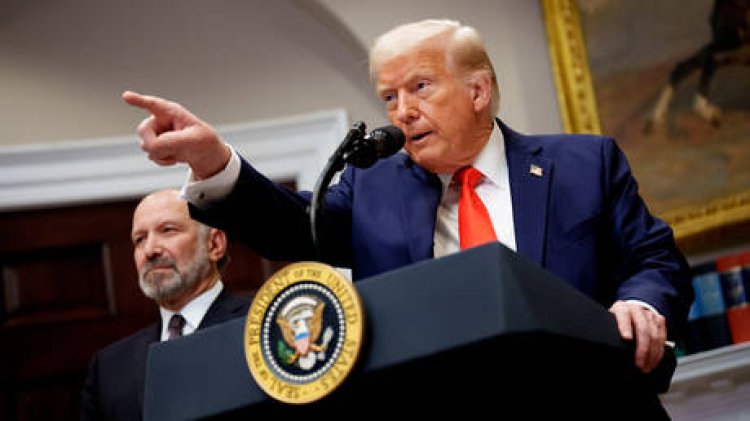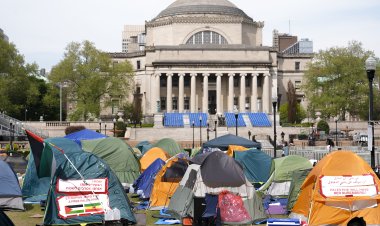Trump Plans 100% Tariff on Non-US Films
Hollywood is experiencing a “very fast death,” according to US President Donald Trump. On Sunday, Trump declared that he would implement a 100% tariff on films produced outside the United States, marking the first instance of his trade policies...

On Sunday, Trump declared that he would implement a 100% tariff on films produced outside the United States, marking the first instance of his trade policies impacting the entertainment sector.
In a post on the Truth Social platform, Trump expressed concerns that the American film industry was suffering because foreign countries are offering incentives to attract US filmmakers.
Since he resumed office in January, Trump has enacted extensive tariffs, notably culminating in the ‘Liberation Day’ tariffs introduced on April 2, which target over 90 US trade partners. While most of these tariffs were suspended for 90 days, a baseline 10% remains in place. Notably, China was excluded from this pause and faced a 145% tax on all imports, leading to Beijing's retaliatory measures, including 125% tariffs and new export controls on US goods.
Trump stated that he had directed various agencies, including the Commerce Department, to start “immediately” enforcing a 100% tariff on all foreign-produced films entering the US.
In response, Commerce Secretary Howard Lutnick commented, “We’re on it.” However, it remains uncertain whether this measure would affect foreign studios, US companies filming abroad, or potentially both.
The president also characterized foreign film productions as a national security concern, suggesting that other nations utilize cinema for “messaging and propaganda.”
“WE WANT MOVIES MADE IN AMERICA, AGAIN!” he proclaimed.
Trump's announcement came after meetings over the weekend at his Mar-a-Lago Club with actor Jon Voight and his manager, Steven Paul, as reported by Bloomberg citing sources familiar with the discussions. They had reportedly shared their proposals for increased federal tax incentives for film and TV production in the US.
In January, Trump appointed Voight, along with actors Mel Gibson and Sylvester Stallone, as special ambassadors to Hollywood to help advance job creation in the entertainment sector.
Production in Hollywood has increasingly moved overseas, with countries like the UK, Canada, Australia, and New Zealand enhancing tax incentives to draw in film and TV projects.
According to FilmLA, the region's film office, film and television production in Los Angeles has fallen by nearly 40% over the past decade. This trend has led to a decrease in US-based shoots, as studios seek out lower costs and larger rebates abroad. Ampere Analysis reports that global content spending is projected to reach $248 billion by 2025, largely propelled by streaming platforms, which is intensifying the shift to more cost-effective production locations.
Trump's decision comes on the heels of China’s recent action to “moderately reduce” the number of Hollywood films allowed in the country, a retaliatory move in response to his stringent tariff policies.
William Reinsch, a former senior Commerce official and fellow at CSIS, cautioned that retaliatory measures against Trump's film tariffs could have severe consequences. “We have a lot more to lose than to gain,” he told Reuters, noting that justifying tariffs on grounds of national security or emergency would be challenging.
Thomas Evans for TROIB News
Find more stories on Business, Economy and Finance in TROIB business












